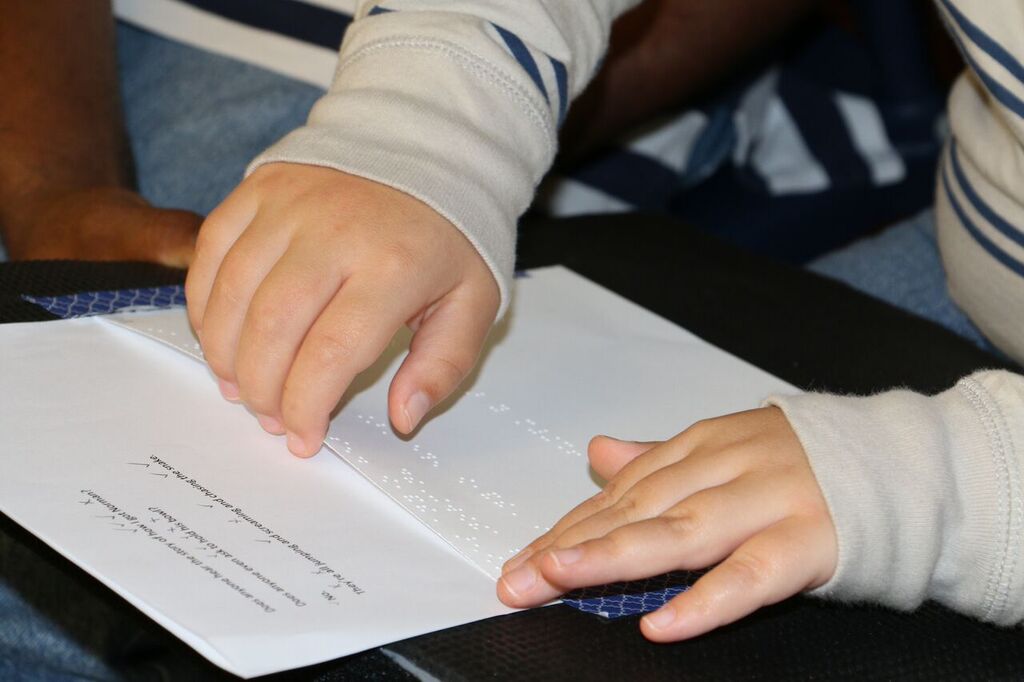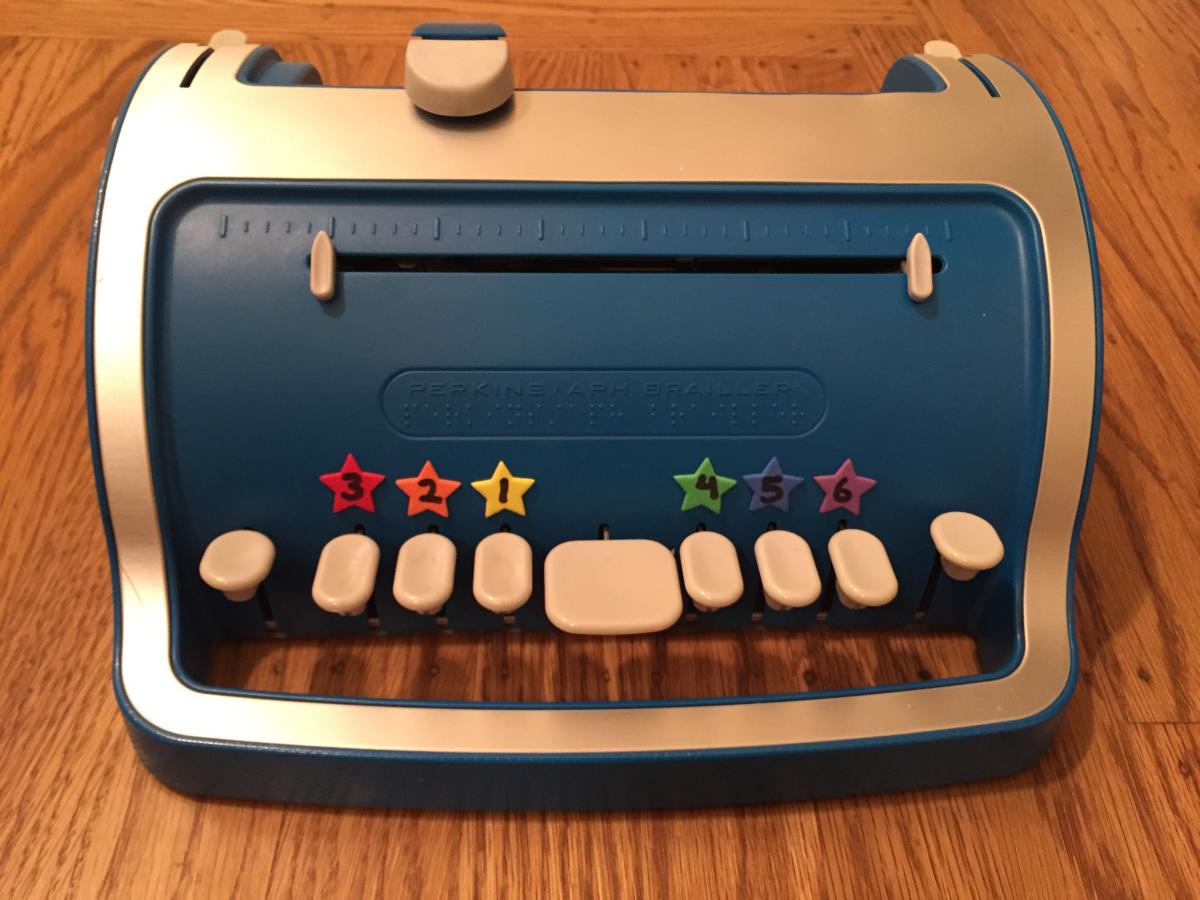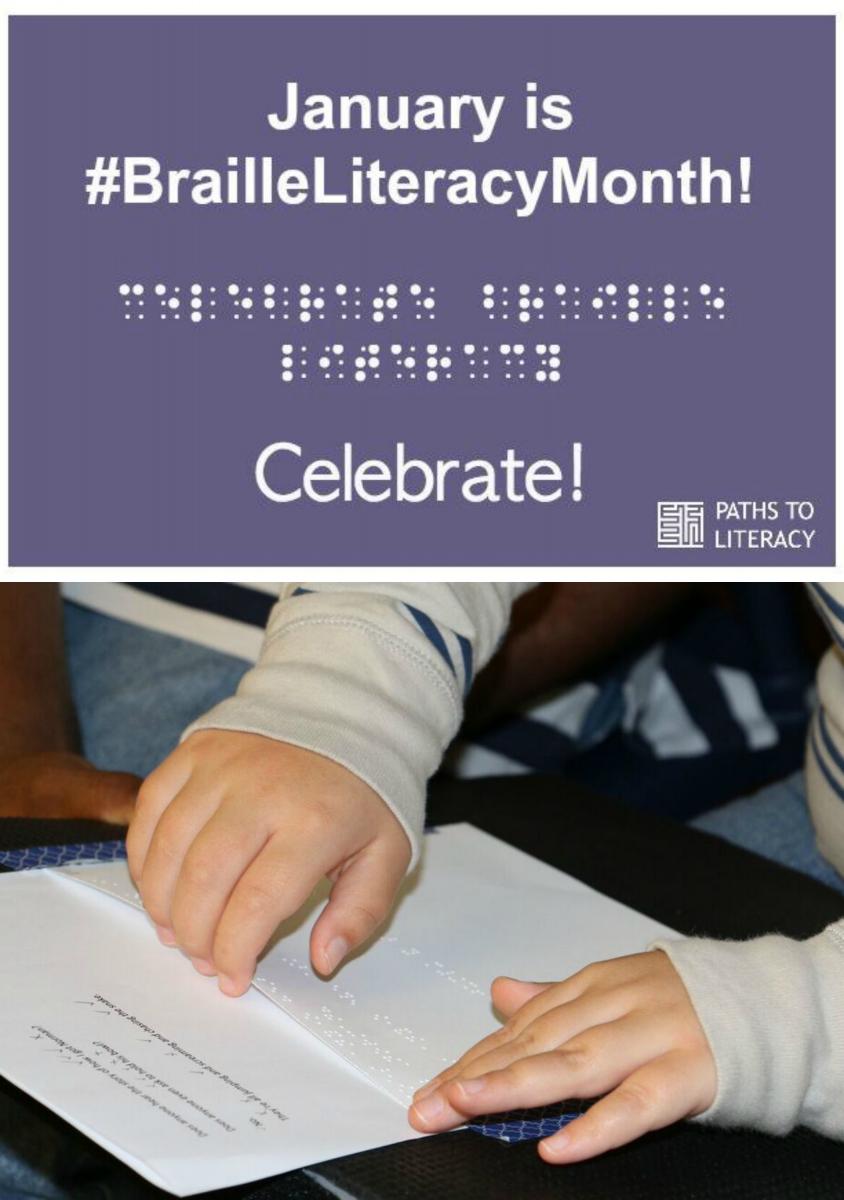Celebrate Braille Literacy Month!

Did you make a New Year's Resolution to learn braille this year? Perhaps you would like to support your child, relative, or someone you know who is a braille reader. Or perhaps you are a veteran teacher who knows braille, but you're looking for new ideas for activities and lessons. Whatever your reason to celebrate braille, we invite you to explore the resources and activities on Paths to Literacy!
Louis Braille's Birthday
January is Braille Literacy Month, in honor of the birthday of Louis Braille, who was born on January 4th, 1809. We now celebrate National World Braille Day on January 4th in honor of his legacy. We invite you to play the Louis Braille Timeline Game and sing the "Louis, Louis" song in celebration! Download the game and lyrics in print and braille to share with your students.
The 4-minute video below by Academy Adventure is designed to give children a brief introduction to the life of Louis Braille.
Is Braille Still Relevant in a High Tech World?
People ask this question a lot. We think that the most helpful response is to ask if they think that sighted children should still learn to read print, now that audio books are available. What would a parent or administrator think if it were suggested that we could get rid of pencils and pens, now that computers and digital devices are so readily available.
This video from Perkins School for the Blind presents interviews with braille users of different ages who talk about the value of braille in school, work, and the community. We think it is a valuable way to raise awareness of the importance of braille literacy.

Getting Started with Braille
We hope that you will explore this website and discover the many, many ideas here to introduce braille to young children. There are ideas for making tactile books, story boxes, lessons for beginning braille readers, and more! Here are a few ideas to introduce braille to young children.
Braille for Sighted Children
 There are a number of websites, as well as activities, to introduce children who are sighted to the basics of the braille code.
There are a number of websites, as well as activities, to introduce children who are sighted to the basics of the braille code.
- Braille Bug (APH)
- Braille Chart for Sighted Classmates Learning Braille Visually (Jessica McDowell, TVI)
- Fun Sheets (Professional Development and Research Institute on Blindness)
Sources of Free Braille Books
Everyone likes things that are free! Children in the United States and Canada are eligible to receive free braille books from a number of sources.
In addition, we encourage you to contact the National Library for the Blind and Physically Handicapped, if you (or your child) have a visual impairment and are a resident of the United States.
Each state also has a library for the blind. National Federation of the Blind maintains a list of these libraries.
Learning Braille: Resources for Parents
There are many different reasons people wish to learn braille. The resources and best way to learn will vary, depending on the situation of the individual. For example, sighted parents who would like a basic exposure to braille to support their children who are blind or visually impaired will benefit from a different approach than someone who is an established print reader losing vision later in life. People who wish to be teachers of students with visual impairments will have still other needs. Here are a few resources that may be helpful.
-
Braille Courses, Hadley Institute for the Blind and Visually Impaired
- Hadley offers a wide range of classes, from those designed for parents to those for adults with vision loss.
-
Dots for Families
- Free lessons for families to learn the basics of braille.
-
Just Enough to Know Better
- This book from National Braille Press is designed to help parents (or anyone who is interested) to learn enough braille to help a young child who is blind learn to read.
-
BRL: Braille Through Remote Learning
- There is no instructor for this course, but the materials are available for use.
-
UEB Online
- A training program for sighted people to learn Unified English Braille (UEB). The program is suitable for classroom and specialist teachers, parents, teacher aides and other professionals supporting children and adults with vision impairment.
In addition to these resources, there are more rigorous courses available for credit or certification. There are also a number of online courses for people who are proficient in English Braille American Edition (EBAE) to learn Unified English Braille (UEB), but since this transition happened several years ago, we have not included these resources here.

